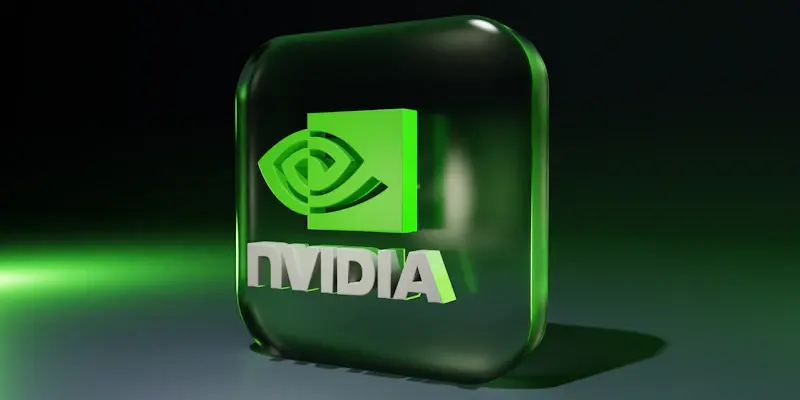Nvidia, a leading player in the artificial intelligence (AI) chip market, is set to report its earnings soon amid increasing competition from DeepSeek, a Chinese company offering low-cost AI models. This intensifying competition has raised concerns among investors about Nvidia’s continued dominance, especially since DeepSeek’s rise had previously led to a historic $593 billion drop in Nvidia’s market value back in January. Despite these challenges, Nvidia’s stock showed remarkable resilience and strong performance through 2023 and 2024.
Investor Concerns and Revenue Projections
Mixed Sentiments Among Investors
Ivana Delevska, Chief Investment Officer at Spear Invest, has highlighted that the concerns surrounding Nvidia’s dominance in the AI chip market are palpable among investors. Delevska points out that while there is anxiety, Nvidia’s ability to consistently exceed market expectations could play a crucial role in maintaining its strong stock performance. Investors are keenly anticipating Nvidia’s projected performance, with expectations set for a 72% revenue increase to $38.05 billion for the fourth quarter. This would mark the slowest growth rate in seven quarters, emphasizing the pressing need for Nvidia to navigate these complex market dynamics effectively.
Projected Revenue Growth
Nvidia is also likely to project a 60% revenue increase for the first quarter ending in April, showing an impressive yet decelerating growth trend. Notably, from prior periods, Nvidia had enjoyed five consecutive quarters of triple-digit revenue growth until October. These figures illustrate the turbulent path Nvidia has walked in navigating the competitive and highly volatile AI chip market. Maintaining robust growth rates is critical, particularly as the company strives to balance new product launches and market challenges posed by growing competition.
Strong Demand and Operational Challenges
Key Partnerships and AI Chip Demand
Despite these concerns, demand for Nvidia’s AI chips has remained remarkably robust. Major tech players like Microsoft and Meta continue substantial investments in large-scale data centers, driving ongoing need for Nvidia’s high-performance chips. John Belton, a portfolio manager at Gabelli Funds, has noted that capital expenditure plans from significant tech firms reflect strong near-term demand for Nvidia’s offerings. This demand underscores Nvidia’s crucial role in fueling the AI revolution, particularly with key customers spearheading expansive data center projects that rely heavily on advanced AI chip technology.
Manufacturing Complexities and Profit Margins
While navigating robust demand, Nvidia has also faced significant operational challenges related to the production of its advanced AI computing systems. The transition from selling individual chips to offering full systems, such as the GB200 NVL72, has introduced additional production complexities. This shift requires bundling GPUs, CPUs, and networking equipment, increasing the sophistication of manufacturing processes. Taiwan’s TSMC, Nvidia’s contract manufacturer, has encountered difficulties expanding capacity for advanced packaging—a critical step in AI chip production. Initial production runs of the new Blackwell chips faced design flaws and low yields, putting additional pressure on Nvidia’s profit margins.
Addressing Production Issues
Nvidia has since resolved many of these initial design and yield issues, and in November, the company confidently stated that Blackwell’s revenue would surpass initial projections, reaching several billion dollars in the fourth quarter. However, this expansion has pressured profit margins, with analysts expecting Nvidia’s adjusted gross margin to fall by over three percentage points to 73.5% in the fourth quarter. While addressing these production setbacks, Nvidia’s ability to innovate and adapt remains a crucial component of its strategy to maintain market leadership and meet the soaring demand from technological giants.
Long-Term Outlook
Balancing Challenges and Demand
While the immediate earnings outlook may reflect the complexities of launching the Blackwell chips and navigating supply chain constraints, Nvidia’s long-term prospects remain influenced by the significant demand from major tech companies. As Belton suggested, the company’s earnings may not display the usual level of outperformance due to these factors. However, this doesn’t overshadow the continuing strong market demand, which emphasizes Nvidia’s relevance in the AI chip market. Strategic efforts to address production challenges and meet high customer demand will be pivotal for Nvidia in maintaining its competitive edge amid rising competition from DeepSeek and other emerging players in the market.
Future Considerations and Strategic Moves
Investors keep a close eye on Nvidia as it navigates this competitive landscape, striving to uphold its dominant position against DeepSeek and other emerging players. The technology sector remains dynamic and unpredictable, with market leaders constantly challenged by innovative newcomers. Nvidia’s ability to innovate and adapt will be crucial as it faces these competitive pressures and aims to maintain its stature in the evolving AI chip market.

